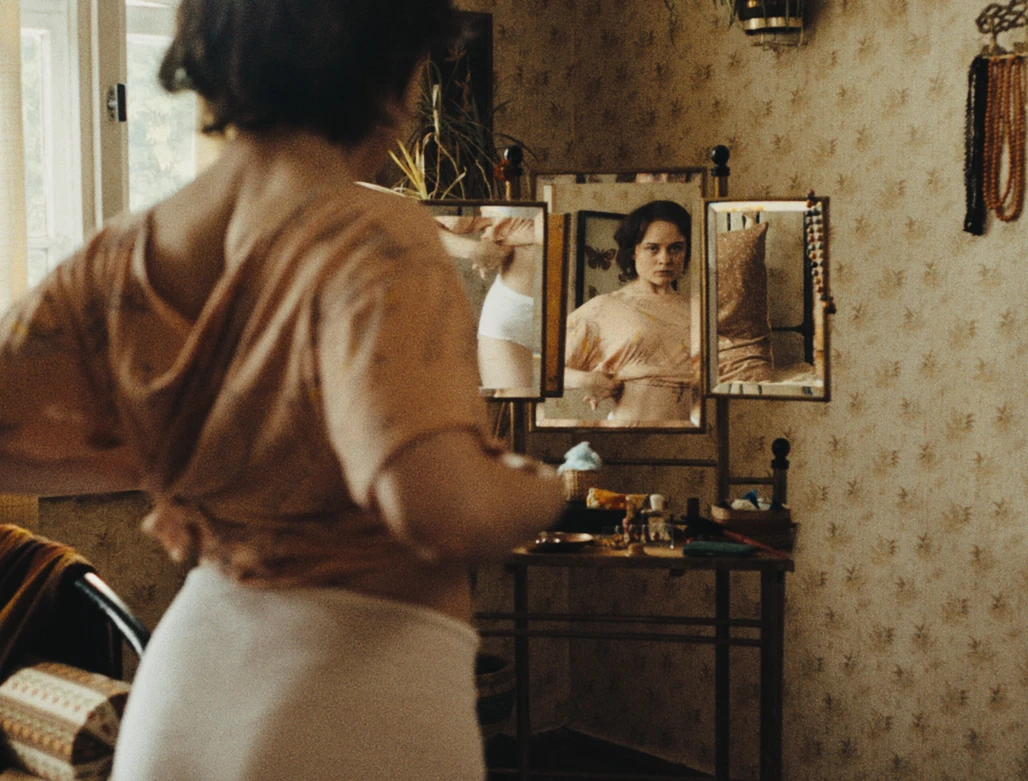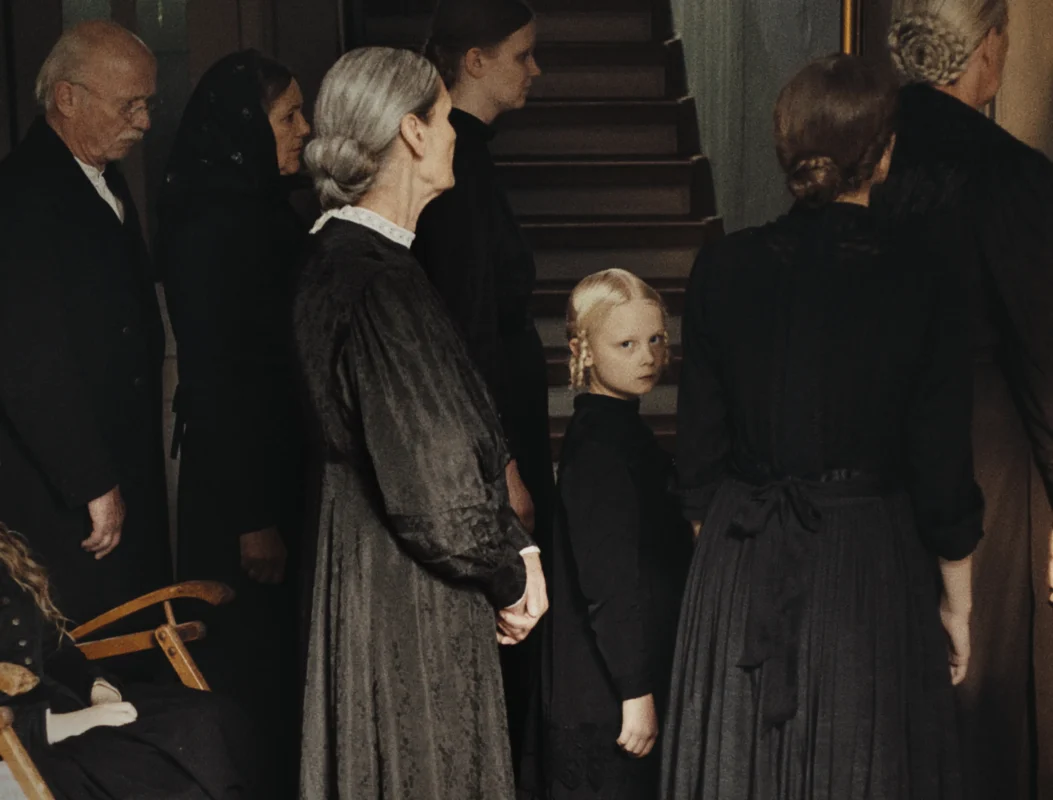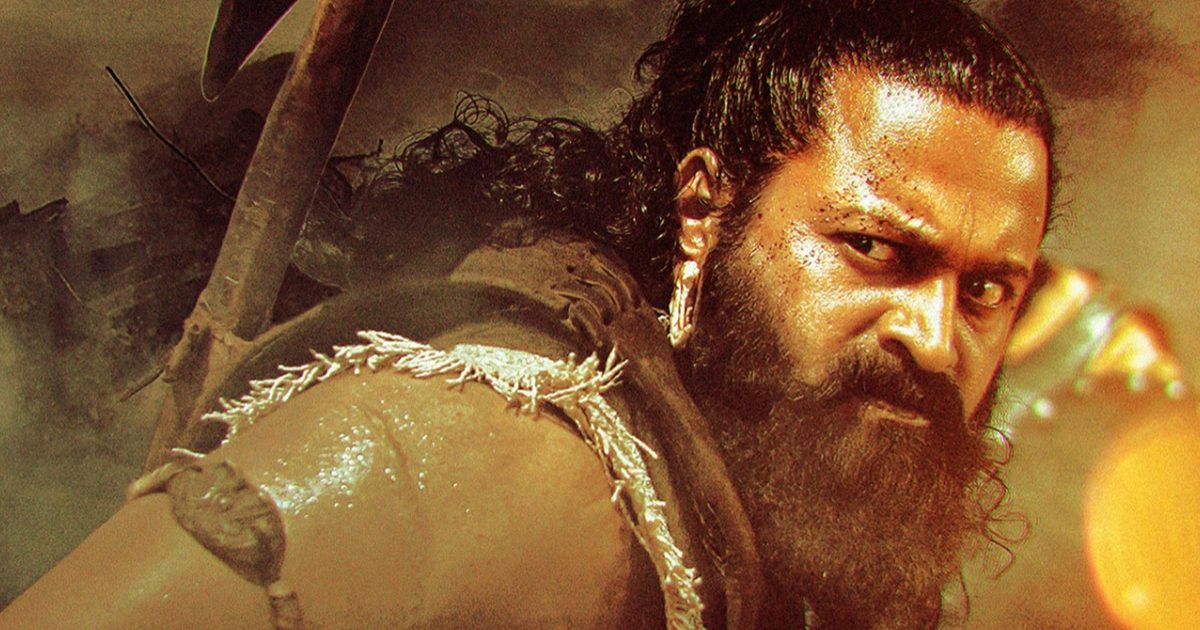“Sound of Falling” (The original title: “In Die Sonne Schauen”, 2025) is a wonderful ambitious movie, which makes it more shocking that it is only the second feature of the writer/director/director Mascha Schilinski. The vaccination of a large number of historical sites with such specific aesthetic details is a challenge in itself, so that the veteran director may struggle with it, but the “sound of fall” is also a heavy and objective work that took the real sight to present something to some extent. There is a lot to be admired in what Shalinsky launched, because the density of the film’s structure did not prevent her from finding healthy and intimate moments. However, the “sound of fall” is often derived from itself, and it has a lack of momentum so that it can often feel that it is a shaking act of exciting shock.
The description of the “Voice of Fall” plot is in itself a challenge, because the narrative approach of the film does not completely decrease until it already begins to hint on his wider ideas. She begins as a look in the middle of the war on Germany in the 1940s, where teenager Erika (Lea Drenda) see her community preparing for the purpose of employment. Mothers intentionally offer their children to prevent them from sending them to join Hitler’s army, and Erika is slowly taught to perpetuate death. However, Erika explores the luxury that is now escalating in her home without knowing Alma (Hanna Heckt), another young girl who had similar experiences three decades ago. Perhaps the world was in the midst of another terrible situation, but the interest of pain in death was driven by watching the body of her grandmother, which was preserved to attend a funerary event.
“Sound of Falling” takes an interesting approach to exploring Germany after the war, a topic that is often not examined like the Nazi era, through the follow -up of teenager Angelika (Lina Orzundoski) during a relatively peaceful period in the 1980s. Although the idea of being called to the weapon has faded, Angelika faces a different kind of persecution because it attracts the eyes of men in her society. As she grows at the age, the brutal, brutal methods that women treat within their community are discovered, raising a mystery of how Alma and Erika families played in this current situation.
These historical crises are related to each other through reality, as Laeni Geiseler faces similar concerns about being a target of desire. There is an open question about the place where the transition between adolescence and femininity begins, but also a brutal perspective about a transient life, especially when it is framing with the context of the entire family history. The death is often a simple and noticeable, and the “sound of fall” is looking at how to leave these cases of tragedy, repercussions that continue across multiple generations.
Also read: 20 best historical drama in all times


The “Voice of Fall” takes unusual lengths to determine its historical ages, which is smart within its scope. While one of the enlightened audience members may be aware of the political intrigues within Europe during these concerned contracts, young heroes are limited in the science they are exposed to. However, this aerial and personal approach also leaves many sectors that you feel widely similar. Even if the point is to show how the trauma and tragedy are renewed between every generation of young women, it is often an arduous watch forcing the audience on the stomach uncomfortable materials that may put a very good point on itself.
It also makes structural anatomy it is difficult to invest completely in any story, as the transformations between renewable suspense moments make each individual story less effective on its own, as it seems to be used purely to clarify a greater point about repeated trends. Although all offers are strong, the “sound of fall” is struggling to find supportive characters in every story that can bear equal weight in the narration.
Some parts appear to be overwhelmed by their sympathy, while others indicate the finding of clear perpetrators. The result is a random frequency that is often separated from the success of one of the areas of focus before it turns to another. While the part that includes Linka in particular reaches a moving conclusion perfectly embodies the ideas that the “sound of the fall” was knocking throughout its operation period for about 150 minutes, the end of Erika’s story is provocative for the value of the shock.
The extent of time that the “sound of fall” is also strange, as it follows the development of four distinguished characters within a film that weaves them (without a noticeable pattern that makes it more friendly) can leave some stagnant or severed emotional arches. It is an unusual option for a very elegant film in its construction, where Schilinski clearly put in finding intimate moments that are difficult to describe in less unconfirmed phrases. However, the film’s interest in the ethereal impact is almost a steep, to be any deliberate moments of breaking reality that looks like another shadow inside a movie that moves without a hurry to reach its end.
It may seem strange to describe a movie like “The Voice of Fall” as a “endurance test”, but this is often what appears to be when seeing how other contract lessons are forgotten quickly. The film may be somewhat effective in raising its satirical points that aim to celebrate Time Fall Flat, and it feels a strange way to form a film saturated with this good pain. Technical brilliance, wonderful shows, and aesthetic virtues may make it so frightening that “the sound of the fall” seems to be less than the greatness, even if the Schilinski clearly has a lot of potential to move forward. Although there are a lot of great qualities that must be completely removed, “Sound of Falling” is more interesting intellectual experience than a successful epic for generations.


